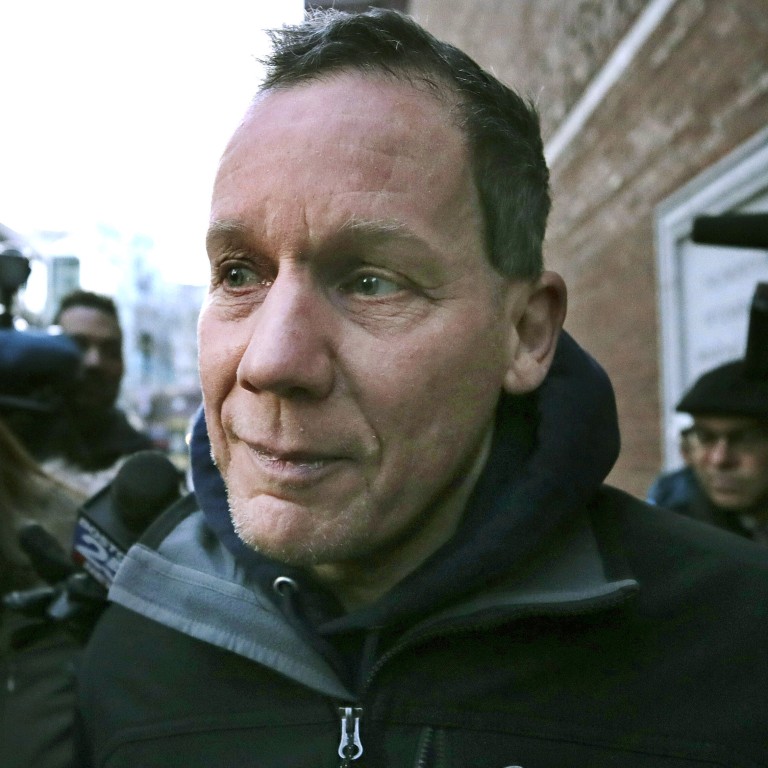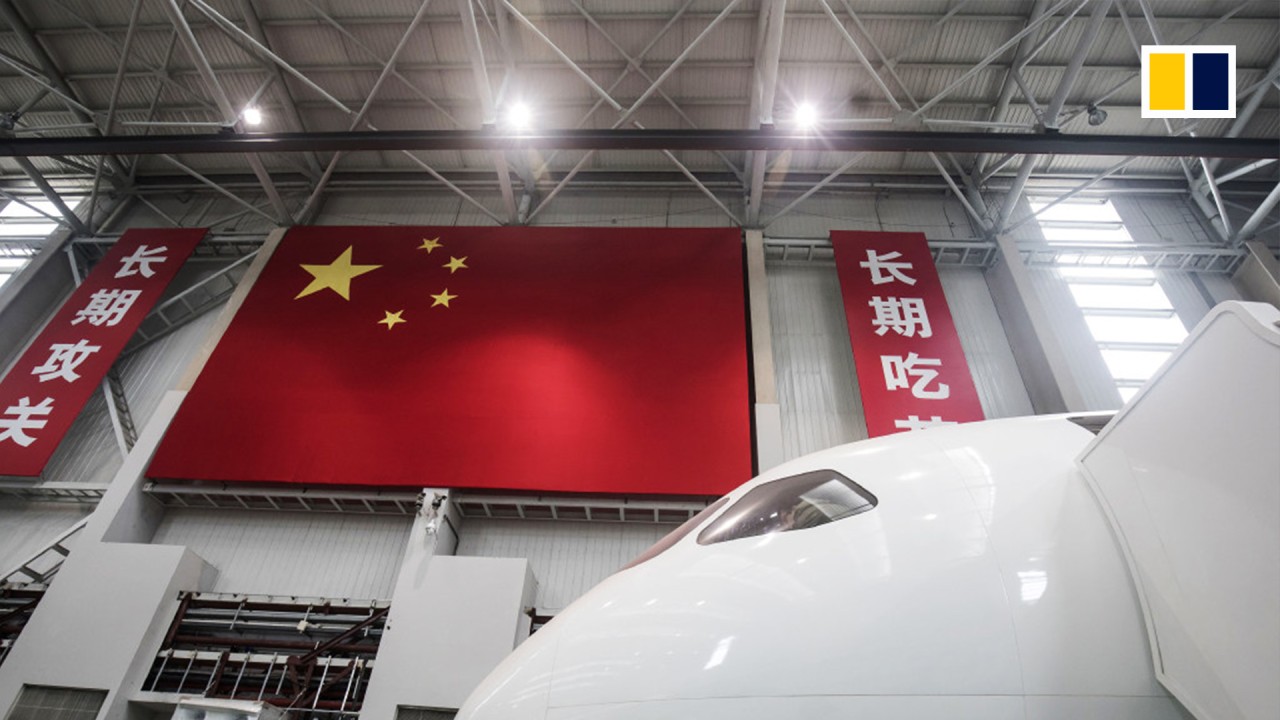
Video shows Harvard professor initially denying bringing cash payments back from China
- Nanotechnologist Charles Lieber is on trial for tax evasion in a case brought by the Justice Department’s China Initiative, which is meant to cut down on trade-secret theft
- FBI video interview with Lieber shows him eventually acknowledge he did not declare the payments for his affiliation with the Thousand Talents Plan on his taxes
In dramatic evidence Friday in the federal criminal trial of Harvard professor Charles Lieber, the scientist was shown on video denying having brought back tens of thousands of US dollars from China before acknowledging he put it in his luggage and spent it on groceries to avoid paying income taxes.
Lieber is on trial in US District Court in Boston facing six total counts of tax evasion, failing to disclose foreign bank accounts and hiding his collaboration with Chinese institutions.
Affiliating with the Wuhan University of Technology (WUT) and the Thousand Talents Plan, a Chinese programme aimed at recruiting top foreign scientists, is not illegal. But failing to report it is. Lieber, 62, has pleaded not guilty to all counts.

The video, shot from above, shows Lieber shortly after his arrest in January 2020 in a small room at the Harvard police station wearing a blue windbreaker, sitting uncomfortably in a chair near the wall.
FBI agents planned to detain him at 6am at his home in Lexington, Massachusetts. But he left for work so early that day that they made the arrest at his laboratory.
Lieber, then the chairman of Harvard’s chemistry department, is initially heard on tape suggesting to two FBI agents that his only connection to talent programme funds is related to a Chinese former student and that he does not have access to any Chinese bank accounts.
“I haven’t been paid by Wuhan except for airfare,” he says. “A lot of countries, money is what they have in excess … That’s one of the things China uses to seduce people.”
As Harvard professor’s trial begins, new scrutiny of US ‘China Initiative’
But as the FBI agents gradually reveal how much they know and show him copies of documents – including a three-year contract he allegedly signed with the Thousand Talents Plan outlining compensation of US$158,000 in personal benefits and approximately $US50,000 a month in expenses – he shifts gears.
“Yes, that’s pretty damning. Now that you bring it up, yes, I do remember,” he says. “Now that you remind me, I used to have some kind of bank card.”
Lieber’s case is part of the US Justice Department’s “China Initiative,” which was launched in 2018 amid concern in Washington that Beijing was stealing vital technology for military and strategic purposes, often through researchers and other academics.
Lieber’s expertise is in nanotechnology – the manipulation of molecules with uses ranging from health care to lithium-ion batteries – a key part of Beijing’s Made in China 2025 blueprint for scientific dominance.
Critics say that China is hardly blameless, but that the Justice Department programme has overreached, ruining careers, fuelling racism against scientists of Chinese descent and ultimately undercutting US competitiveness.
They also criticise the government for going after paperwork violations involving academics whose research is public – rather than actual trade secrets and espionage cases that are more difficult to prove.
“Initially, people were thinking this case was really fair, that they’re not only targeting Chinese-Americans but they have a white Harvard professor accused of working with China,” said Wing-kai To, assistant provost of Bridgewater State University in Massachusetts and a critic of the initiative.
In federal ‘China Initiative’ case, Harvard might also be put on trial
“Maybe he lied, maybe he didn’t report everything and got money. He may have done something dumb or improper. But is it espionage, stealing secrets? That’s not the case.”
As the videotaped interrogation continues, the agents ask Lieber what motivated him to get involved with the talent programme run by the Wuhan university. “I don’t know, because I was younger and stupid,” Lieber says, adding that scientists gain stature by the number of citations to their work by other scientists.
“Everyone wants to be recognised. I’m not exactly competitive, but if I get other people to pursue an aspect based on the research I did, there is a trickle down,” he says. “Every scientist wants to win a Nobel Prize.”
Under further questioning, and as the agents show him alleged copies of his email correspondence with WUT staff, Lieber initially says he may have received US$10,000 to US$20,000 in honorariums.
But he eventually admits that it could be several times that amount; that he brought it back in his luggage in stacks of US$100 bills wrapped in brown paper; that he did not declare it on his taxes and might have kept in a US safe deposit box.
“It could be more than $50,000. Honestly, I think it must be less than $100k – OK, obviously I blanked out most of this stuff,” he says.
Lieber adds that one motive in taking the money may have been concern that he might not survive a cancer he had recently been diagnosed with, leading him to hide it from the National Institute of Health and the Department of Defence, both of which funded his research.
“I was scared of being arrested, like I am now,” he says, adding that he hadn’t spent a fraction of the money, which included at least US$200,000 in a Wuhan bank in his name. “I don’t think I really enjoyed the fruits.”

Lieber, wearing a dark suit, watched quietly in the packed courtroom as the tapes played.
Under cross-examination by Lieber’s lead defence lawyer, FBI Special Agent Kara Spice – who appeared in the video – acknowledged that China operates many talent programmes; that Lieber never deposited money in or took funds out of the Wuhan bank account; and that she knew the names from reading documents but never met in person any of the WUT people whose names appear in the emails and contracts.
“I’ve read them,” Spice said.
“We’ve both read them,” countered Marc Mukasey, Lieber’s attorney. “But I’ve also read works of fiction.”
The case is expected to wrap up and go to the jury by Tuesday.


